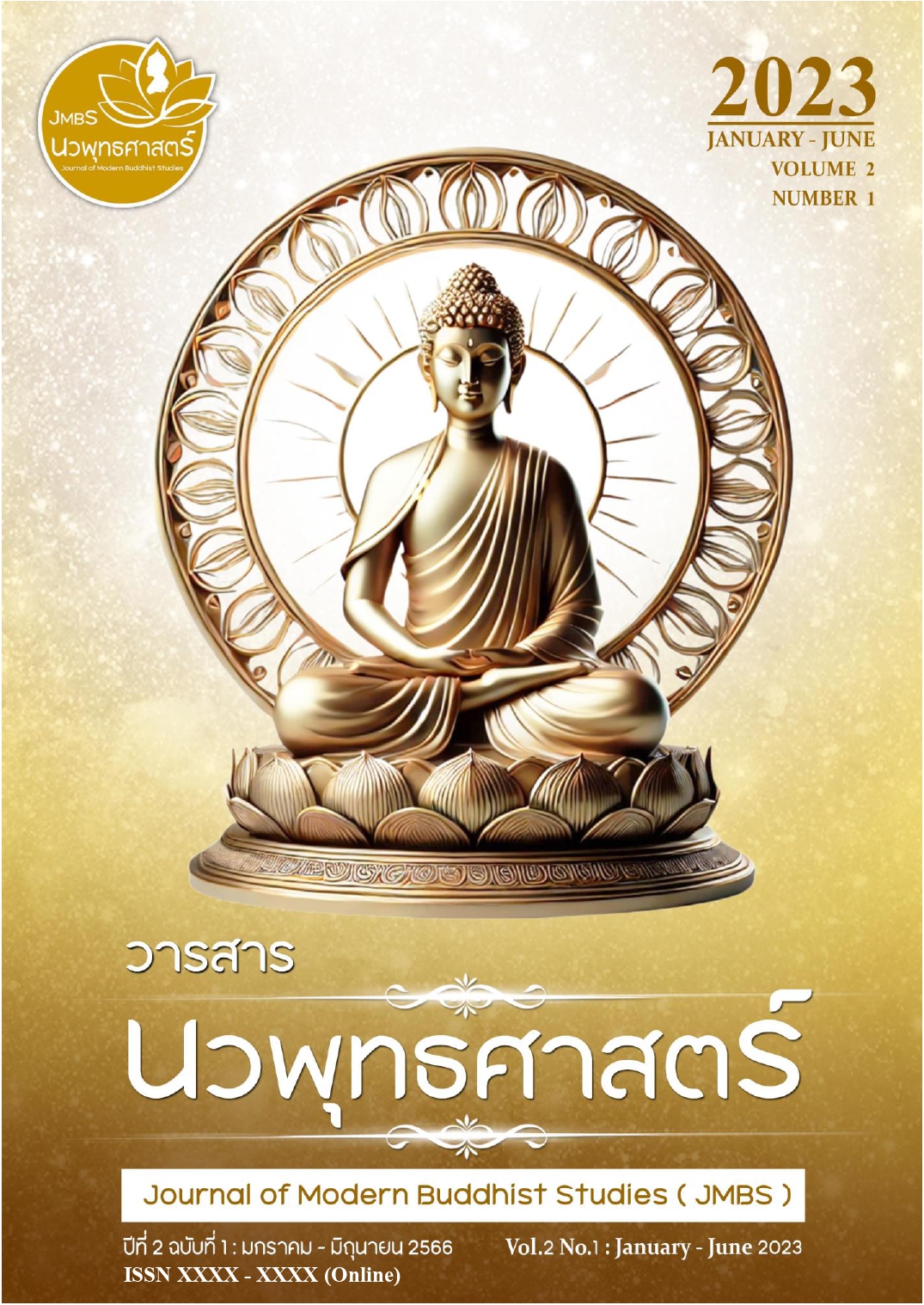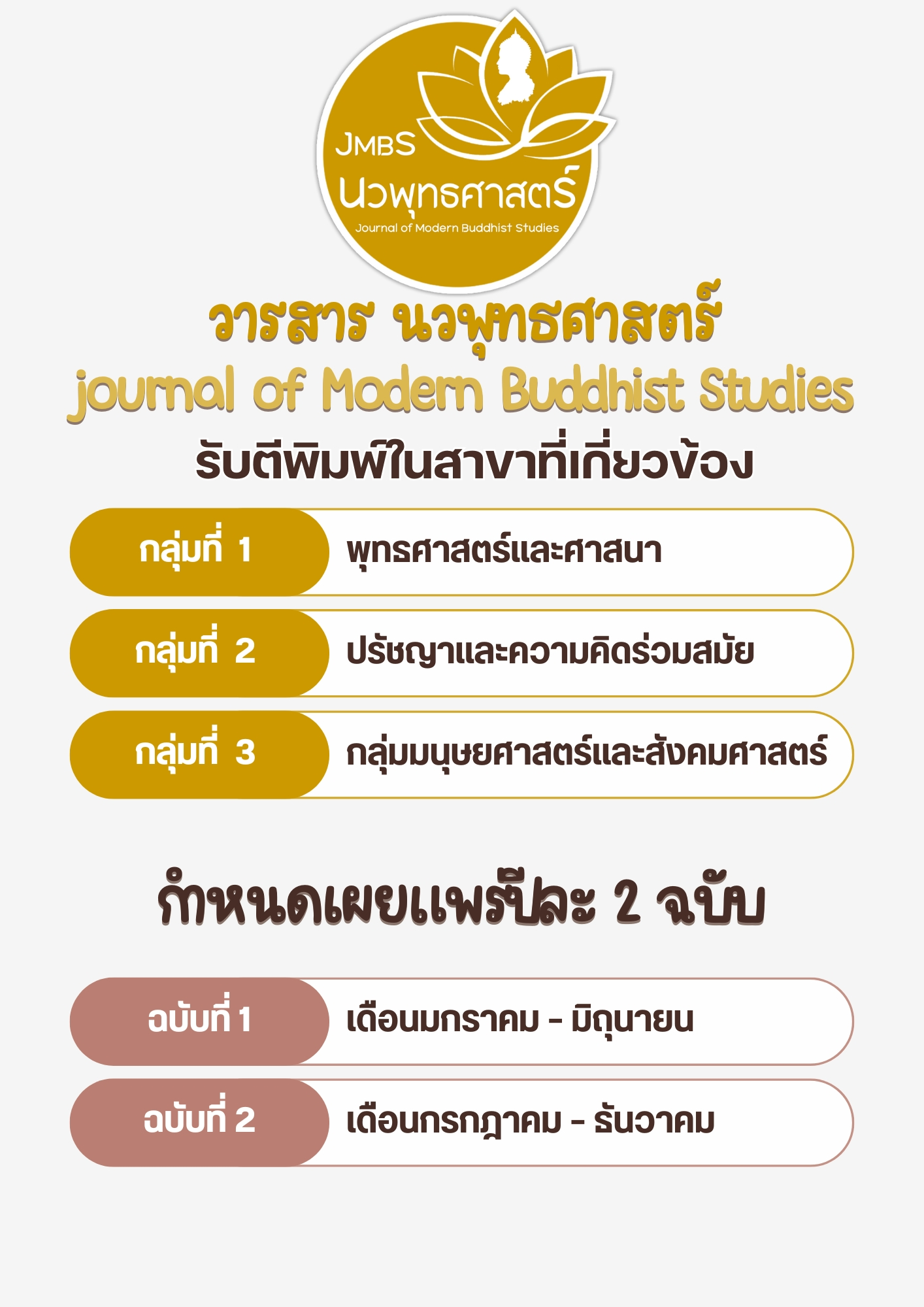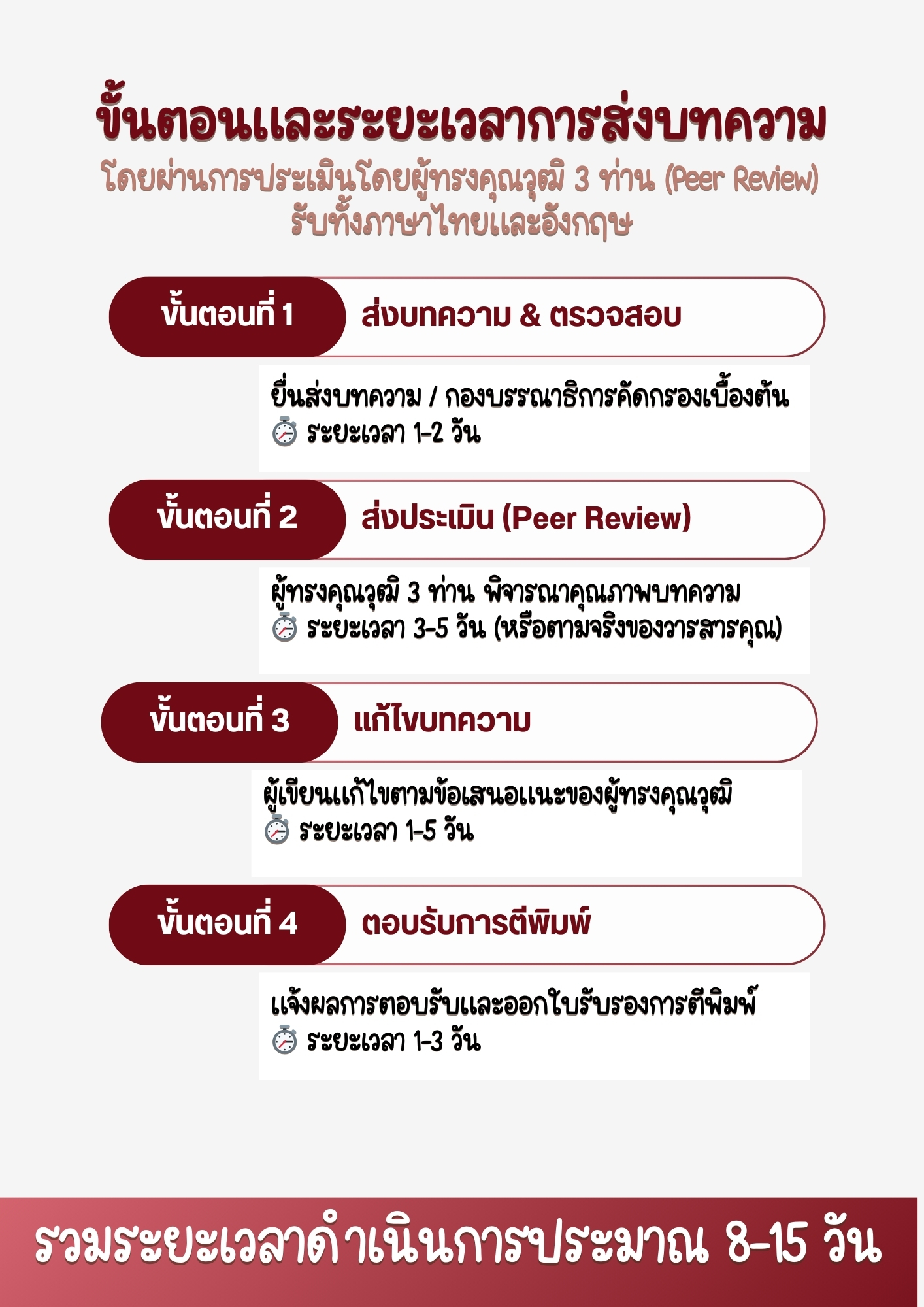THE DEVELOPMENT PROCESS OF COMMUNITY-BASED TOURISM: EXPERIENCING LOCAL LIFESTYLES TOWARDS SUSTAINABILITY IN THAMAO COMMUNITY
Keywords:
Development Process, Community-Based Tourism, Thamao CommunityAbstract
The research titled “The Development Process of Community-Based Tourism Towards Sustainability in Tha Ma-O Community” employed Qualitative Research methods. Data collection was conducted through In-depth Interviews with 15 key informants, purposively selected for their expertise in community-based tourism development. The findings of the study revealed: 1.Context of the Model Community for "Local Ways Tourism" in Tha Ma-O Community Tha Ma-O Community is distinguished by its unique local culture and traditions. Visitors are attracted to important landmarks, beautiful natural scenery, and delicious local cuisine. The community demonstrates strong preservation of art and culture while developing competencies that align with its identity. 2.Analysis of the Community-Based Tourism Development Process Towards Sustainability Collaborative efforts between residents and local agencies define tourism routes. Marketing is promoted through soft power initiatives and cultural activities. The community focuses on creating businesses and products that enhance local income. 3.Presentation of the Development Process Towards Sustainability The proposed sustainable development approach emphasizes: Supporting local businesses. Improving education. Promoting cleanliness and environmental conservation. Using resources sustainably. Encouraging public participation and equitable access to rights. Leveraging technology and innovation to enhance community development. The findings highlight the importance of integrating cultural preservation, local participation, and innovation in achieving sustainable community-based tourism.
References
คณะกรรมการส่งเสริมคุณธรรมแห่งชาติ (2561). คู่มือการประเมิน องค์กร ชุมชน อำเภอ และจังหวัดคุณธรรมภายใต้แผนแม่บทส่งเสริมคุณธรรมแห่งชาติ ฉบับที่ 1 (พ.ศ.2559 - 2564). กรุงเทพมหานคร:กรมการศาสนา กระทรวงวัฒนธรรม.
ณัฏฐวุฒิ ทรัพย์อุปถัมภ์ (2558). ทฤษฎีและหลักการพัฒนาชุมชน. จันทบุรี : คณะมนุษศาสตร์และสังคมศาสตร์ มหาวิทยาลัยราชภัฏรำไพพรรณี.
ประสิทธิ์ อาศัยบุญ (2551). “การมีส่วนร่วมในการพัฒนาชุมชนของประชาชนในเขตตำบลไร่น้อย อำเภอเมือง จังหวัดอุบลราชธานี”. วิทยานิพนธ์ศิลปศาสตรมหาบัณฑิต. บัณฑิตวิทยาลัย: มหาวิทยาลัยราชภัฏอุบลราชธานี.
พระครูประโชติสารนิวิฐ (2564). ภาวะผู้นําเชิงจริยธรรม. “วารสารการบริหารการศึกษา มมร.วิทยาเขตร้อยเอ็ด”. 1 (1) (มกราคม – เมษายน).
พลอยจันทร์ สุขคง, ททท (2566). เปิดแผนปี 66 เน้นพลิกฟื้นอุตสาหกรรมท่องเที่ยว สร้างคุณค่าสู่ High Value & Sustainable Tourism. สืบค้นข้อมูลจาก https://thestandard.co/tat-2023-plan/.
ลำปางเมืองแห่งการเรียนรู้ (2566). หลักการและเหตุผล, สืบค้นข้อมูลจาก https://lampang .dusit.ac.th/ lampanglearningcity/%e0%b8%97%e0%b8%b5%e0%b9%88%e0%b8%a1%e0%b8% b2-2/
สมชัย ศิริสมบัติ (2544). “การมีส่วนร่วมของกรรมการชุมชนในการพัฒนาเทศบาลสู่เมืองน่าอยู่กรณีศึกษาเทศบาลเมืองบ้านบึง อำเภอบ้างบึง จังหวัดชลบุรี”. วิทยานิพนธ์รัฐประศาสนศาสตรมหาบัณฑิต. บัณฑิตวิทยาลัย: มหาวิทยาลัยบูรพา.
สุภา สังขวรรณ (2560). การพัฒนาแหล่งท่องเที่ยวเชิงอนุรักษ์ในจังหวัดสมุทรสงคราม. “Journal of Management Science Nakhon Pathom Rajabhat University”. 4 (1).
สุรเชษฏ์ เชษฐมาส (2539). “การท่องเที่ยวเชิงอนุรักษ์:แนวคิด หลักการและความเป็นไปได้ในการประยุกต์ใช้ในอุทยานแห่งชาติ”. เอกสารประกอบประชุมสัมมนาอุทยานแห่งชาติกับนันทนาการ และการท่องเที่ยวในทศวรรษหน้าเพื่อทรัพยากรที่ยั่งยืน 27-28 พฤษภาคม 2539. กรุงเทพมหานคร : กรมป่าไม้.
อนุวัฒน์ ชมภูปัญญา และ ธนัสถา โรจนตระกูล (2565). การพัฒนาศักยภาพชุมชนแบบมีส่วนร่วมสู่ชุมชนท่องเที่ยวที่ยั่งยืน. “Journal of Modern Learning Development”. 7 (8) (กันยายน).
Hosmer, L.T (1995). Trust The Connecting Link between Organizational Theory and Philosophical Ethics. “Academy of Management Review”. 20 (1).

Additional Files
Published
How to Cite
Issue
Section
License

This work is licensed under a Creative Commons Attribution-NonCommercial-NoDerivatives 4.0 International License.







